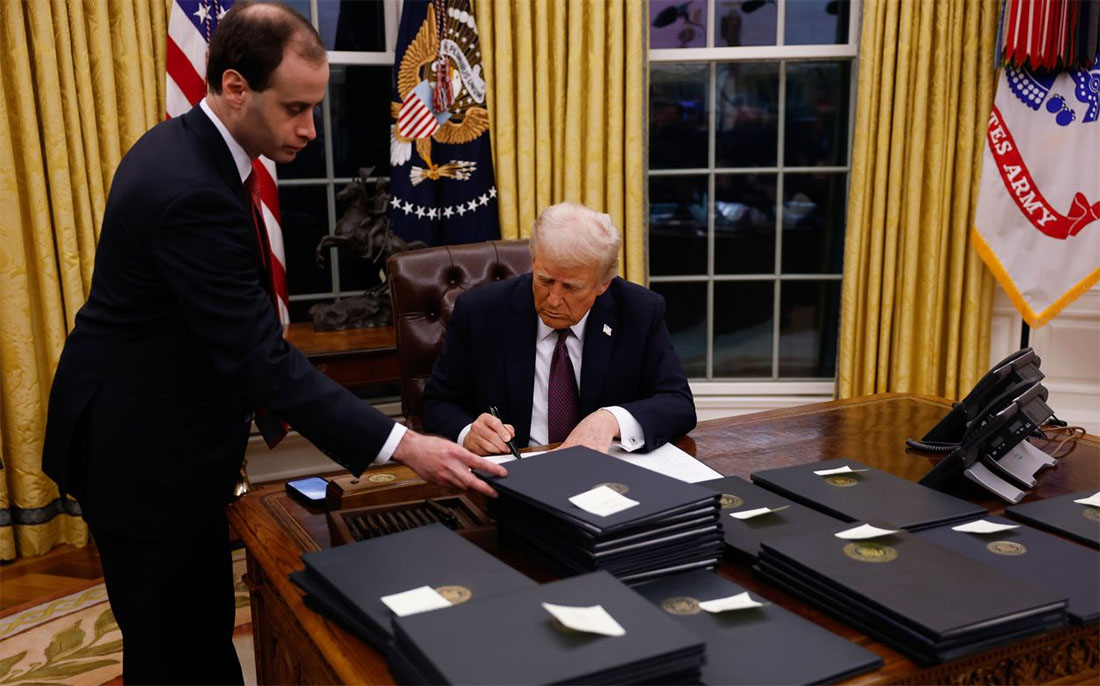Photo Credit: Getty Images
Asia-Pacific markets plunged dramatically on Thursday following President Donald Trump's announcement of hefty reciprocal tariffs targeting over 180 countries and territories. The sweeping trade action has sent shockwaves through global financial markets, with particularly severe impacts across Asia.
The White House justified these tariffs by citing what they claim are unfair effective tariff rates imposed on American goods through "currency manipulation and trade barriers." China faces the steepest penalty with a 54% total tariff rate - a 34% new reciprocal tariff added to existing 20% duties.
Other major Asian economies received substantial tariffs as well: India (26%), South Korea (25%), and Australia (10%). These rates reflect what the Trump administration considers appropriate reciprocal responses to each nation's trade practices.
"They (India) are charging us 52% and we charge almost nothing for years and years and decades," Trump stated during his White House announcement, explaining his rationale for the reciprocal tax policy.
Chris Kushlis, chief emerging markets Macro Strategist at T. Rowe Price, called the measures "a significant increase in tariffs on Asian exports, and arguably more than anticipated by the market." He noted that with the U.S. accounting for approximately 15% of regional exports, these tariff increases "would pose a meaningful headwind to growth this year."
Japanese markets suffered the most severe reaction. The Nikkei 225 plummeted 3.24%, recovering slightly after initially dropping over 4%. The broader Topix index fell 3.66%. Hong Kong's Hang Seng Index declined 2.08%, while mainland China's CSI 300 dropped 0.66%.
South Korea's Kospi fell 0.84% after recovering from an early 3% drop. India's markets showed more resilience, with the Nifty 50 down just 0.25% and the BSE Sensex declining 0.24%. Australia's S&P/ASX 200 closed 0.94% lower.
Investors fled to safe havens amid the uncertainty, pushing spot gold to a record high of $3,133.51 per ounce.
Stephen Dover of Franklin Templeton highlighted that Southeast Asian nations, which previously benefited from tariffs on China, now face "some of the highest reciprocal tariffs." He warned that American families could pay up to $4,200 more annually under a 20% average tariff rate.
This massive trade action begins with a baseline 10% tariff starting Saturday, with the remaining higher tariffs taking effect from April 9. The pharmaceutical sector received a notable exemption, particularly benefiting India's drug manufacturers, whose shares rose nearly 5% despite broader market declines.
The White House stated these tariffs will remain until Trump determines that "the threat posed by the trade deficit and underlying non-reciprocal treatment is satisfied, resolved, or mitigated."
Economists warn these measures will likely slow household and business spending, increasing "risk of U.S. growth and earnings disappointments in 2025," according to Dover. Market analysts now brace for potential retaliatory measures as the prospect of a global trade war looms larger by the day.


